Ilja Enger Tsizikov/Dreamstime.com
Dark-haired individuals face challenges when wanting to transform their hair color without harsh bleaching processes. While achieving vibrant results on darker bases might seem daunting, though, using professional hair color can create stunning transformations while maintaining hair health. The secret lies in understanding color theory, choosing the proper techniques and being realistic about achievable results. Let’s take a closer look at some ways to dye dark hair without bleaching.
The Science Behind Dark Hair Coloring
Hair color chemistry plays a vital role in understanding how to effectively color dark hair. Melanin, the natural pigment in dark hair, creates a base that influences how artificial pigments interact with the strands. When coloring dark hair, the goal is to deposit new pigments that can either enhance the natural shade or create noticeable color changes without stripping the existing pigment.
The Role of Hair Porosity
Your hair’s porosity also impacts coloring success. High-porosity hair typically accepts color more readily but may also fade faster. Low-porosity hair, on the other hand, often requires longer processing times but retains color better once absorbed. Performing a simple porosity test before coloring helps determine the most effective approach.
Understanding Color Deposit Technology
Modern hair coloring has evolved beyond traditional permanent dyes. Today’s advanced formulations use innovative color deposit technology that allows pigments to adhere to the hair shaft more effectively. When combined with a hair color developer, these formulations can provide remarkable results — even on darker bases. The developer’s strength determines how deeply the color penetrates, though lower volumes are typically recommended for non-bleach approaches.
1. Semi-Permanent Solutions
One of the gentlest approaches to coloring dark hair involves using semi-permanent colors. These formulations sit on the hair’s surface and gradually fade over time, making them ideal for experimenting with new shades. Rich burgundies, deep purples and midnight blues can create stunning results on dark hair while maintaining its natural undertones.
2. The Power of Color Depositing Masks
Color depositing masks are an innovative approach to dark hair coloring. These conditioning treatments combine nourishing ingredients with pigments, allowing for gradual color building while improving hair health. Regular application can intensify the color effect while keeping strands moisturized and manageable.
3. Henna and Natural Alternatives
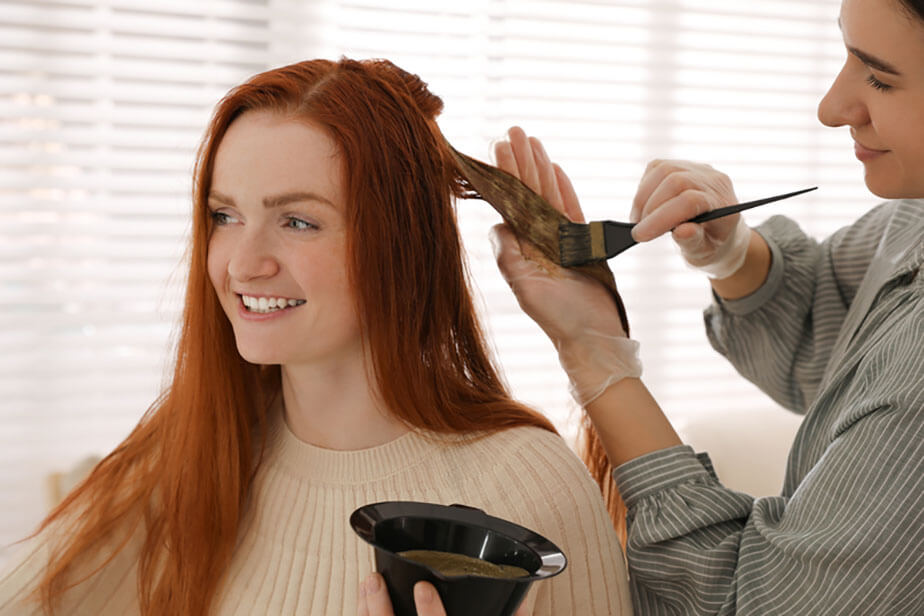
Chernetskaya/Dreamstime.com
Natural coloring options like henna offer unique benefits for dark hair. Pure henna creates a reddish-orange tint that, when combined with other natural dyes like indigo, can produce various shades from deep reds to rich browns. Sourcing pure, high-quality products and understanding that natural colors build up gradually over multiple applications is vital.
4. Innovative Color Enhancement Products
Recent advancements in hair care have introduced sophisticated color enhancement products designed specifically for dark hair. These include color-depositing conditioners, temporary color mousses and shine-enhancing serums with subtle tinting properties. These products can refresh color between treatments or create temporary changes for special occasions.
5. Professional Techniques and Treatments
Seeking professional assistance opens up more possibilities for dark hair coloring. A hair gloss treatment can add dimensional shine while subtly shifting your hair’s tone. Professional colorists can also create custom color formulations that work with your natural base to achieve your desired results without bleaching.
Advanced Color Placement Methods
Strategic color placement can create striking effects on dark hair. Techniques like balayage, when performed with darker shades, add dimension and movement without the need for pre-lightening. Select shades that are no more than two levels lighter than the natural base to ensure the best results.
Maintaining Colored Dark Hair
Color maintenance is always crucial for lasting results. Using color-safe, sulfate-free products helps prevent premature fading. Regular deep conditioning treatments maintain the hair’s health and vibrancy, while protecting colored hair from excessive heat and sun exposure preserves the shade’s integrity.
Addressing Common Challenges
Coloring dark hair without bleach comes with challenges. Managing expectations is, as dramatic color changes typically require multiple sessions. Understand that most colors appear more subtle on dark bases to set realistic goals for the coloring process.
The Future of Dark Hair Coloring
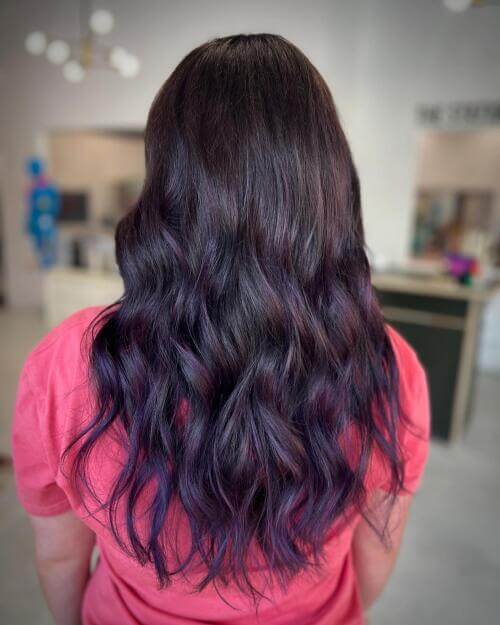
@rebel.rinse.repeat via Instagram powered by Squarelovin
Leading manufacturers continue to expand possibilities for dark hair coloring. New formulations and delivery systems promise more vibrant results without the damage of bleach. These innovations focus on enhancing natural undertones while providing longer-lasting results.
When selecting a coloring approach for dark hair, consider factors like your desired outcome, maintenance commitment and hair health. The secret to success is choosing techniques that work with your natural base rather than fighting against it. Modern coloring methods offer numerous possibilities for transforming dark hair while maintaining its strength and shine, proving that achieving beautiful results doesn’t always require bleaching.
Patience plays a crucial role in non-bleach coloring processes. Building color gradually often yields better, more sustainable results than attempting dramatic changes in a single session, so take your time and follow your stylist’s recommendations. With proper products, techniques and maintenance, you can explore various color possibilities while keeping your hair healthy and vibrant.






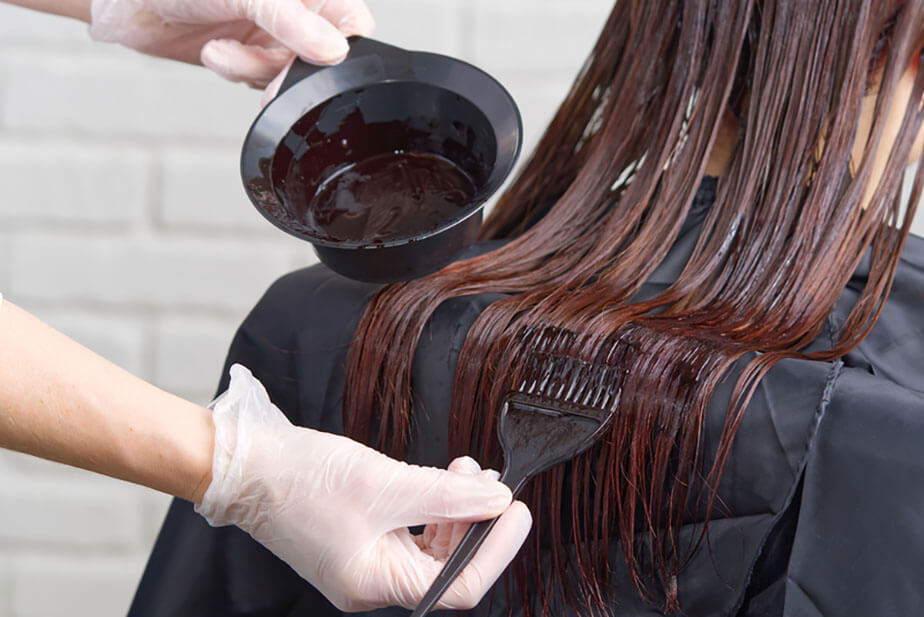




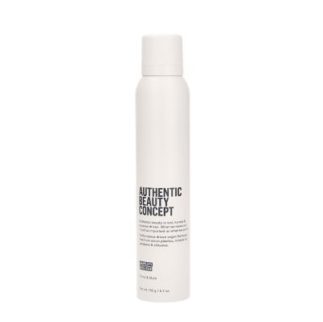
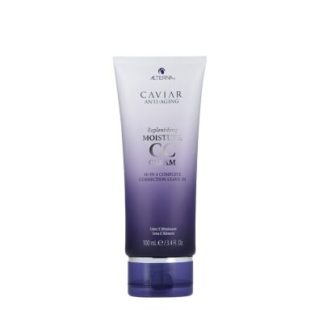
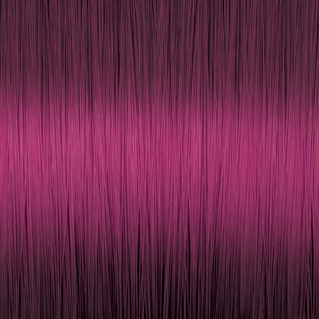
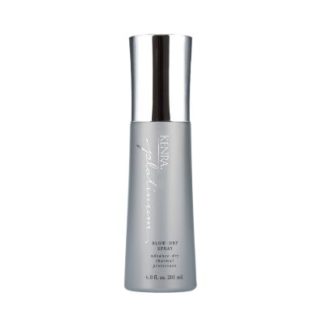
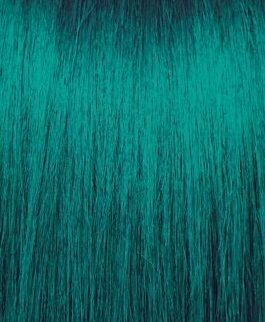
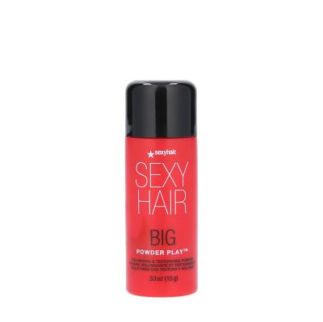
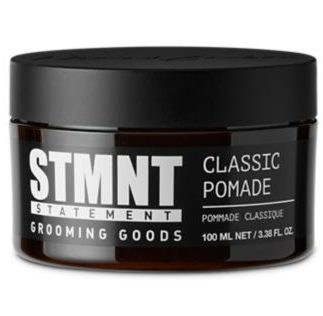
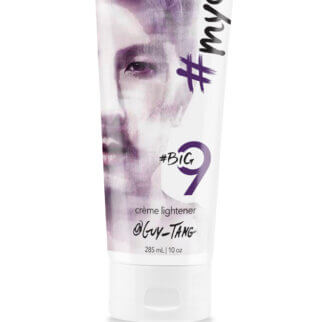
Share Your Feedback